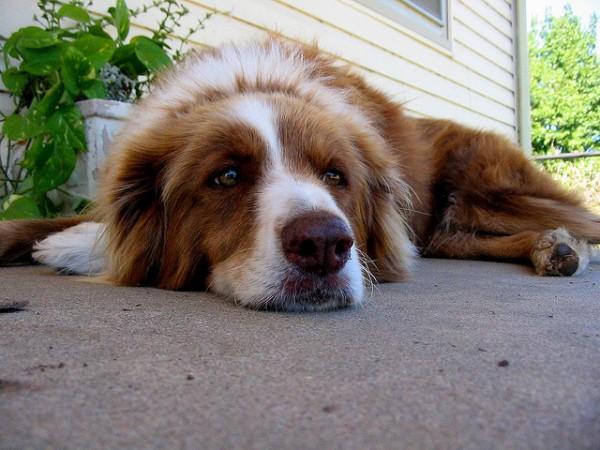
No more painful tests, now, dogs can detect prostate cancer by simply smelling the urine samples, a new study says.
Interestingly, results of the new diagnostic technique turned out to be nearly 98 percent accurate, Health Day reported.
The study included a total of 677 people out of which 320 were prostate cancer patients. Development of the test involved training two dogs to identify the presence of certain chemicals produced by prostate cancer tumours, known as volatile organic compounds, in the urine samples. The chemical, if present in the urine, produces an odour.
During the study, the canines were trained to sit in front of the urine samples to check the presence of the organic compound. Researchers repeated the tests and one dog detected cancer at 98.9 percent of accuarcy while the other one at 97.3 percent. On making an accurate identification, the dogs received rewards.
Detecting prostate cancer is difficult as it does not cause any symptoms in the early stages, forcing patients to undergo several unnecessary tests like the prostate-specific antigen (PSA) blood test, digital rectal exam (DRE), transrectal ultrasound (TRUS), or a prostate biopsy.
Researchers hoped that their findings will help improve the diagnostic methods currently available to detect this type of cancer.
"With our study, we have demonstrated that the use of dogs might represent in the future a real clinical opportunity if used together with common diagnostic tools," author of the study, Dr Gian Luigi Taverna, told Health Day.
"Our standardized method is reproducible, low cost and non-invasive for the patients," he explained, later. The potential of using a dog for recognizing prostate cancer might reduce unnecessary prostate biopsies and pinpoint patients at high risk for prostate cancer."
Dr Taverna, a researcher with Humanitas Research Hospital in Milan, Italy presented the findings at an annual meeting of the American Urological Association in Orlando, on Sunday, 18 May.
Similar to the current study, in August last year, researchers from the the University of Pennsylvania's Working Dog Center trained dogs, particularly German Shepherds and retrievers, to detect ovarian cancer. Later in November, Portuguese designer Susana Soares developed an equipment made of glass, that used specially trained honey bees to diagnose cancer from the patient's breath.









